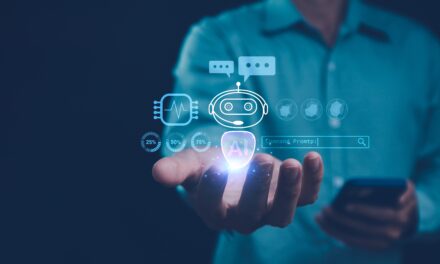On Tuesday, Nvidia’s CEO Jensen Huang took the stage at the CES tech trade show in Las Vegas and reiterated exactly what I’ve been saying for the last year…
That AI agents will be the next big thing for artificial intelligence.
He even went so far to say:
“I think this year we’re going to see it take off,” calling it a “multi-trillion dollar industry”.
Here’s a photo from his keynote that shows where AI is headed.

But what exactly are AI agents?
And what do they do?
Google just published a whitepaper explaining them, and I encourage you to read all 42 pages if you want to take a deep dive into this fascinating topic.
But for now, let me break down AI agents for you in simple terms.
Because you’re going to start hearing a LOT more about them in 2025….
And I want you to be prepared.
What Are AI Agents?
A year ago, at our Total Wealth Symposium at the Ritz Carlton in Orlando, Florida, I gave a talk on where AI is headed next.
Back then, I said the next big breakthrough in AI is what’s called “Artificially Capable Intelligence” or ACI.
This is when you give an AI a task and it takes multiple steps to complete that task.
It’s also exactly what an AI agent does.
Unlike earlier AI models like ChatGPT that wrote songs and generated images, these new agents can interact with other programs and learn from real-time data.
Imagine telling Siri you want to find the cheapest flight to Chicago that leaves next Tuesday morning from any of the three major airports in the Washington DC area.
Right now, Siri is simply incapable of handling that request.
But these new AI agents are able execute multi-step tasks like this all on their own.
Here’s an example of a flight search reasoning chain from the Google whitepaper on AI agents:

As you can see, the agent thinks through the problem to offer the best answer.
This called the orchestration layer — which allows AI agents to process information in cycles, incorporating new data to refine their actions and decisions.
It gives these agents the ability to break down complex tasks and explore multiple possible solutions simultaneously.
As they continue to improve, AI agents will be able to go to multiple different websites to consider the best options.
Just like you would…
But much, much faster.
And they’ll even be able to act on these kinds of requests using the data you’ve shared with them like your credit card and reward numbers.
This is much more advanced that regular software that can only follow a set of instructions to perform specific tasks.
For example, a calculator app is software that knows how to add, subtract, multiply and divide based on exact rules programmed into it.
It does the same thing every time because it’s built to follow those fixed instructions.
The amazing thing about AI agents is that they can work on their own without needing people to tell them exactly what to do.
Instead of following strict instructions, AI agents use a kind of “trained knowledge” to guess or generate something new.
Once agents know what goal they need to achieve, they can figure out what steps to take even if they’re not given detailed instructions.
For instance, if you ask a generative AI agent to write a story or explain a concept, it looks at everything it has learned and tries to create a response that fits your request.
They don’t always need clear instructions to know how to proceed, which makes them more flexible and creative compared to regular software.
In other words, AI agents already think more like a human.
They consider how to reach goals and solve problems in a way that can produce different results depending on the situation.
And they’re rapidly getting better at it…
Why Are AI Agents the Future of AI?
I just gave you a simple example of how you could soon use AI agents in your personal life.
But that’s just scratching the surface.
As I said before, the amazing thing about AI agents is that they have autonomy.
They can act on their own.
That positions them as a new type of digital worker capable of handling complex workflows.
With AI agents, we will soon be able to automate tasks that previously required human intervention…
And this will drastically change the future of work.
I’m not talking about the far future either. It’s already starting to happen.
OpenAI chief Sam Altman recently published a blog post where he said:
“We believe that, in 2025, we may see the first AI agents join the workforce and materially change the output of companies.”
That’s why I’m so excited about this technology.
We could see AI agents start transforming businesses this year.
By automating complex tasks and enhancing decision-making processes, these agents could become indispensable across various industries.
The companies that harness this new AI agent technology will see significant gains in efficiency and productivity…
And see their stock prices soar as their businesses produce more with less.
That’s why I believe 2025 will be the year that companies either harness AI agent technology or see their competitors ride this technology to new heights.
Regards,

Ian King
Chief Strategist, Banyan Hill Publishing









